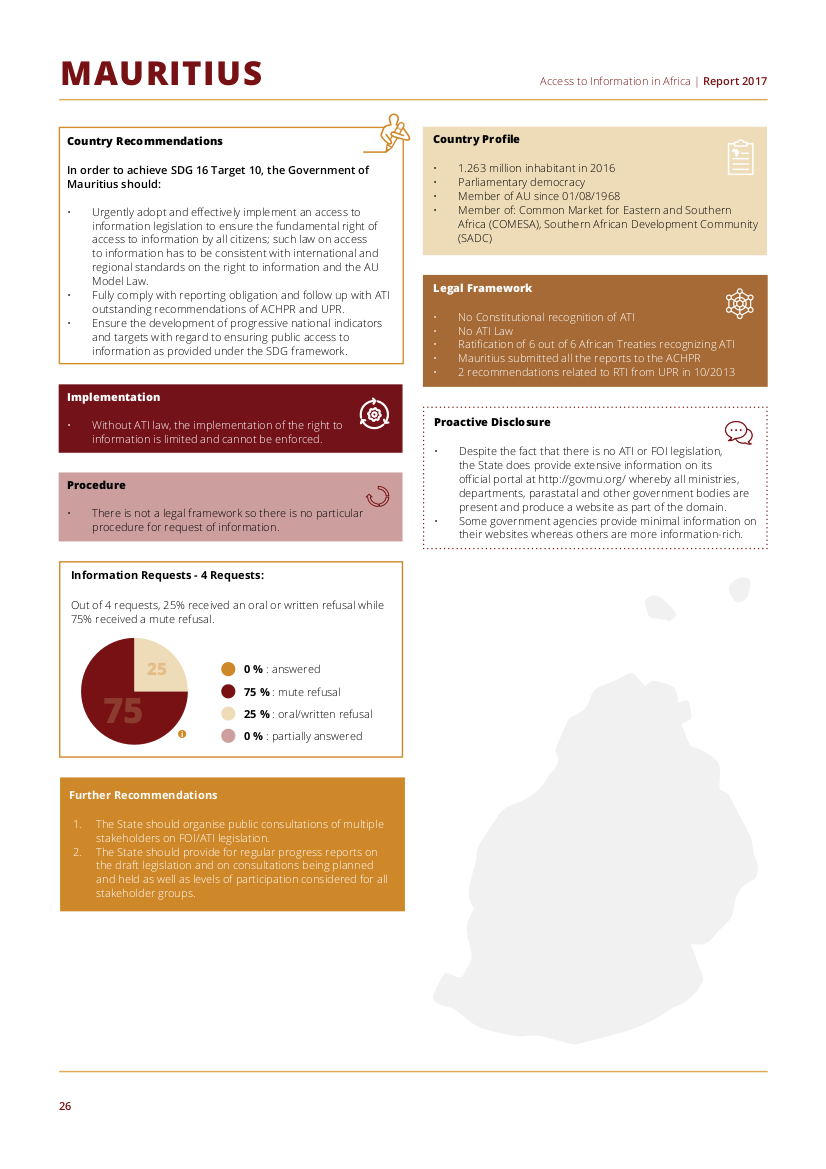Mauritius
A proposal for a booking and shopping process for supermarkets during the COVID-19 crisis in Mauritius
Debate idea for media houses for the by-elections of #18

Today, I posted this on Facebook:
I offer this idea to all media houses: please organise a different type of debate with the candidates.
One where a voter of the constituency is randomly selected from the voter roll of each ward to ask questions to the candidates. If people decline, just keep on with the random selection until you find those who are willing to participate.
One where you collect questions from the voters of the constituency and select the ones which get more upvotes and those themes which are more relevant to the constituency.
One where candidates are NOT allowed to talk about their opponents at all and are only allowed to talk about what they intend to do as opposition MP for the constituency:
– how they plan to interact with all those they will represent once in parliament (including partisans and non-partisans – and this should not just be about the weekly meetings which will definitely attract mostly partisans, thus skewing the whole process)
– what type of questions they will raise about the constituency when in parliament (why not ask them what their 3 first PQs would be?)
– how they plan to report back to the inhabitants on the answers they have received and the follow-up they plan to do
Because, we’ve already heard it all about the reasons for their engagement with a particular party as opposed to another one, their current positioning wrt current national issues, their scathing criticism towards their opponents (also known as yesterday’s and tomorrow’s potential friends)…
Please feel free to use my ideas because I am a voter in Quatre-Bornes and I think this would allow me to make, not necessarily the better choice, but at least make up my mind about the one who has the highest probability of being a better MP for QB than the others.
In the comments, I also added:
Since there’s not much time left, why not organise a joint exercise in a neutral venue for once? Maybe at the Media Trust?
(…) the point is that any voice should have the same probability of being heard, not just ‘expert voices’, a category where people tend to think of people of our socioeconomic class only.
Transcription of live tweet session on the State of Right to Information in Mauritius
The State of the Right to Information in Mauritius in 2017
Transcription of live tweet session
organised by the African Freedom of Information Centre (AFIC)
with Christina Meetoo (@christinameetoo) and Abdoollah Earally (@AbdEarally)
Hashtag #AccessToInfo
This live tweet session was held on Tuesday 17 October 2017 from 15.00 to 16.30 (Mauritian time)
Tweets have been slightly edited for punctuation and typos.
For more information, read the full report and the Mauritius country report at: https://www.christinameetoo.com/2017/10/17/report-on-the-state-of-access-to-information-in-africa-2017/

AFIC @AFIC1
Question 1. @christinameetoo Which are the guarantees for ATI in Mauritius, at national and international level?
Christina Meetoo @christinameetoo:
- There is no law on access to information in #Mauritius, thus no specific guarantee for access to information in Mauritius.
- There is only a clause on freedom of expression in Constitution to guarantee freedom to receive & impart ideas and information.
- This freedom is curtailed by restrictions linked to national security, privacy, public morality, public safety, health, etc.
- And there’s an Official Secrets Act & a Human Resource Manual which prohibit civil servants from sharing information without authorisation.
- In 2005 and 2015, winning coalitions have promised to introduce legislation on freedom of information (but not in 2010).
- In 2013, government appointed consultant Geoffrey Robertson proposed FOI legislation, reform of media laws & media self-regulation.
- In January 2016, Cabinet announced that a bill on FOI was being prepared.
- In March 2016, the ACHPR country report committed to introduce FOI legislation, suggesting that the State Law Office is working on a draft.
- But, there is little visibility so far on progress made.
Sarah @sarahfkiw:
How far has this bill been? Why has it not yet been signed? #SDG16 #accesstoinformation #Mauritius #IDUAI @Gilbertsendugwa
Christina Meetoo @christinameetoo:
- No bill has been presented yet. We are assuming that the State Law Office is working on a draft bill but we have no further information.
- FOI legislation is very difficult step for political parties as it could result in constant scrutiny & questioning by mass media & citizens.
- Our political parties are not used full transparency.
Report on the State of Access to Information in Africa 2017

The Africa Freedom of Information Centre (AFIC) has published the Report on the State of Right to Information in Africa 2017 in the context of SDG 16.10.2. The full report which covers 23 African countries is available at: here and the summary version here.
I have contributed to the report by writing the country report for Mauritius. If you wish to read it, here is the country report.
After Rutnah and Rahim, what next?
For those of you who have followed the political highlights in Mauritius, I believe that the lesson of the week is “Make haste slowly”. This is valid both for our politicians (“think twice before speaking nonsense”) and our media (“thoroughly investigate your sources before publishing”). As well as for ourselves, as commentators in the very public social media sphere. There’s always more than meets the eye. Both may have valid starting points (for one anger at press coverage, for the other incriminating evidence), but clearly both have failed to handle themselves properly.
In this age of quick bucks, quick communication, quick impact, quick everything, how can we build a sustainable livelihood together?
It is high time that the Morgan and Robertson reports be really examined with a level-headed, rational attitude.
For those who may not remember, Robertson made 3 broad recommendations:
- Review of dated laws which affect the media (and communication in general) such as sedition, defamation, publication of false news.
- Introduction of self-regulation of the media by a Media Commission under a revamped Media Trust
- Introduction of Freedom of Information Legislation
The nitty-gritty details of some of his proposals may be subject to discussion but my personal opinion is that overall, these seem to be fair and balanced recommendations as they open the gates of FOI and advocate self-introspection for media.
Next week, there will be a launching of a report on access to information at the eLearning Africa Conference for the International Day for Universal Access to Information. I have contributed to the report for Mauritius and I can say that FOI seems to be on the way although more efforts need to be put in to lobby for it. Sooner or later, it will come because the State has made official commitments to the African Commission on Human and People’s Rights.
However, self-regulation does not seem to be on the agenda anywhere for the media. It is high time that it be.
To read more about FOI and media self-regulation:
Preliminary report by Geoffrey Robertson QC
Interview in Defi Media: Les politiciens et la presse jouent au muppet show
L’après Christiana Chery: pour une instance de co-régulation des médias
A Gender Code of Ethics for the Media
Media Ethics and Regulations. Insights from Africa
Some publications on FOI and media self-regulation
Workshop on Freedom of Information
Une interview non publiée sur la liberté d’information
Why do we need Freedom of Information?